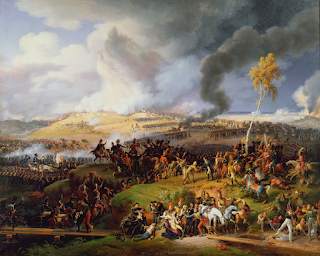Demons are scary and Maxwell's Demon is bound to be even more so. Maths and physics frighten many of us as much as any ghost or devil. But did you know that physicist James Clerk Maxwell, in 1867, actually birthed a demon in a thought experiment?
In the thought experiment, a demon controls a small massless door between two chambers of gas. As individual gas molecules (or atoms) approach the door, the demon quickly opens and closes the door to allow only fast-moving molecules to pass through in one direction, and only slow-moving molecules to pass through in the other. Because the kinetic temperature of a gas depends on the velocities of its constituent molecules, the demon's actions cause one chamber to warm up and the other to cool down. This would decrease the total entropy of the two gases, without applying any work, thereby violating the second law of thermodynamics.
Most demons are rather useless in practice, because they simply don't exist. However, Maxwell's demon has helped scientists, pointing the way to overcome problems even in concrete aspects of life.
To understand more about Maxwell's demon, try How Maxwell’s Demon Continues to Startle Scientists:
Ideas like this could prove useful in designing more efficient thermal systems, like refrigerators, or even in developing more advanced computer chips...
But, if that's too much too, try a short story based on Maxwell's pet thought experiment: Maxwell's Demon Went Down to Georgia.
And, if that is also not your cup of tea, try this:While too many humans still cling to beliefs about supernatural beings, and while such persons often end up causing devilish horrors in real life, there are also a number of people who prefer to flex the muscles of their brain to learn more about the world in which we live. So let's put all our mythical monsters into fiction where they belong and enjoy them only in stories.
Our children would do better to learn more about Maxwell and other great minds than be brainwashed into primitive belief systems which are causing barbaric bloodshed in the present. James Clerk Maxwell produced his first scientific paper, “On the Description of Oval Curves,” when he was only fourteen! If parents can focus on reading to improve their knowledge of the world, rather than on consuming best sellers, would it not give a nation's children a better chance at improving the world?





